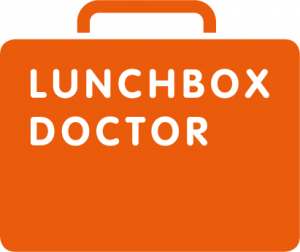
Four Steps to a new year and a new you – it isn’t what you eat, it is the way that you eat it
As we start the new year hopefully you don’t have resolutions which are too drastic? As we welcome in 2020, it is best not to try and go too far against the natural flow but perhaps to gently return from the excesses of Christmas to the normal routine and eating schedule.
As we look forward to this year, I want to bring you some thoughts around healthy eating that don’t focus on the nutritional value of the food itself. So much of what we read about, especially at this time of year, is “low carb”, “calorie counting”, “low sugar” and “weight loss diet” but how much thought do we give to the way in which we eat and what effect this can have on our health? To this end I have created the four steps to a healthier 2020 and it has absolutely nothing to do with the food and everything to do with the way we eat it.
1. EAT TOGETHER
You may have heard these phrases “Dinner is better when we eat together.”; “A family that eats together stays together” or “Food is the ingredient that binds us together?“
According to the National Center on Addiction and Substance Abuse at Columbia University, children who share family meals three or more times a week:
- Are less likely to be overweight
- Are more likely to eat healthy food
- Perform better academically
- Are less likely to engage in risky behaviours
- Have better relationships with their parents
Similar studies show the health benefits of eating together. They include less weight gain, better relationships and social interaction skills as well as improved nutritional intake and absorption.
2. EAT SLOWLY
Studies have found that eating more slowly and chewing your food more completely lead to decreased intake, better absorption of nutrients, better appetite regulation, and improved satiety.
3. DON’T EAT WITH DISTRACTIONS (Phones, TV on, etc)
Jeffrey Brunstrom, a researcher in behavioural nutrition at the University of Bristol, carried out research in which 22 volunteers played solitaire while eating a meal whilst another 22 ate the same meal without any distractions. The solitaire-playing eaters did far worse at recalling what they’d eaten and felt substantially less full just after their meal. Thirty minutes later, when given the opportunity to eat again, they ate two times as many biscuits as those volunteers who had eaten without distraction. Brunstrom said “Memory plays an important role in the regulation of food intake, and distractions during eating disrupt that.”
4. ONLY EAT UNTIL 80% FULL
We can all be guilty of piling food on to our plates, especially if we are “ravenous” or “starving” (two phrases that we use easily but if we are true to ourselves do we always use them accurately?). The trick is to make sure that we try and recreate the way in which people in the healthiest parts of the world eat. In the areas of the world known as ‘The Blue Zones’ there are an abnormally large number of people living to over 100 years of age. One of these regions of the world, Okinawa, even has its own phrase for eating to 80% full. This is known as Hara Hachi Bu. The benefits of eating this way are improved digestion and absorption of nutrients and less overeating.
So you can see that by leaving a healthy distance from the WHAT we are eating and focussing our attentions on the HOW we are eating we can improve our overall health and wellbeing. I appreciate it is not always possible to achieve these steps all of the time but knowing how much better it is to eat together, eat slowly, eat without distractions and eat to only 80% full means we have something to aim for and strive to achieve. What’s important is that no one gets stressed about not reaching these goals. We can only try our best.
